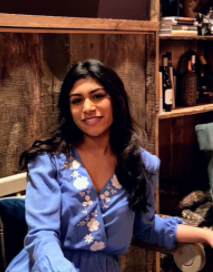Sabbasani: It’s okay, not to be okay
August 20, 2020
“School is starting. Two weeks till I move in. I need to buy dorm room decorations. Where are my classes? Where are my friends?”
These were all the thoughts that were racing through many students’ heads about one year ago. Those thoughts quickly changed within a year. A return to home in March marked the beginning of quarantine. People found ways to cope through the chaos in order to reduce coronavirus transmission. There was a glimmer of hope that fall 2020 would be a start to normality once again, but that hope quickly diminished. As of August 6, Case Western Reserve University announced that a large portion of students will not be able to return to live on campus.
That news brought dismay to many students. The college life many dreamt of will be completely different for the indefinite future. As this fast-paced change occurred, everyone had to undergo an immense readjustment in their lives. The college scene we once knew has now morphed into a world of isolation.
College students already have to balance the stress of attending college. From rigorous coursework to maintaining a social life, there is great pressure externally to fulfill all expectations. And now these fears and anxieties are compounded due to additional safety and health measures. A single room has now turned into a virtual classroom, a dining hall, a social gathering spot and a bedroom. Abrupt transitions and the uncertainty of the future is causing great stress for students, leading to a greater vulnerability for mental health issues.
As the new school year begins, the battle against mental illness will grow exponentially. The stressors will become endless. Between class, homework, exams, professors, friends and family, where is the time for self-development?
As young intellectual individuals, it is up to ourselves to realize there is always room for change and endless opportunities to better mental health, regardless of this unexpected situation.
Numerous schools around the nation, including our own CWRU, have given students access to virtual counseling and psychological services. Colleges believe emotional reactions during this time of crisis can vary from person to person. Whether one feels scared, anxious, grateful, hopeful or angry, it is all valid. Rather than avoid or ignore unpleasant emotions, they encourage students to pause and tune in to what they are feeling.
Are these resources enough? The definite answer is no. Over 45% of people aged 18-24 years experienced symptoms of trauma- or stress-related disorders due to the pandemic as of June 2020. Mental health problems, even with greater accessibility to resources remotely, are soaring and negatively impacting many.
We must each take the initiative to help ourselves. We need to allow our minds to be compassionate towards ourselves so we can realize that it is okay, not to be okay. This type of attitude will also encourage a positive mindset. Moreover, it is essential to take care of the body. Maintaining good eating, sleeping and exercising habits will contribute to a healthy lifestyle full of energy.
These are not the only measures we can take: for centuries, meditation has been shown to decrease stress and relinquish chaos that can coincide with mental well-being. During meditation, all that is needed is to focus; eliminate the stream of jumbled thoughts that may be crowding the mind. This process results in enhanced physical and emotional well-being. From gaining self-awareness to managing healthy stress levels, the benefits are endless.
Although meditation is not for everyone, that does not mean all hope is lost. There are so many other options that can be tailored to each individual. It is all a matter of trying to better oneself and asking for help when needed. During this unprecedented time especially, doing all you can to take care of your mental health is crucial.
Let’s all be there for each other and create a healthy environment for ourselves and our fellow peers at CWRU.



